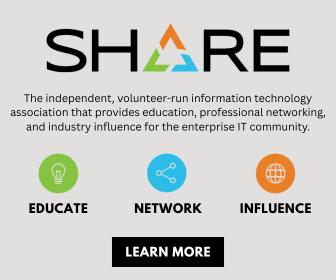The most recent wave of media articles predicting the death of COBOL happened just before the pandemic. In 2019, COBOL supporters were celebrating the 60th birthday of this venerable computer programming language.
Now COBOL is 65, and it’s still around. COBOL is far from dead.
Getting Paid to Code
I first learned about COBOL while studying computer science and software engineering at college in the 1980s. Most of our project work was written in C, but we also had to submit some projects in ADA, COBOL, and Motorola 68000 assembly code.
I grew up coding BASIC and assembly code on the Commodore 64, so COBOL wasn’t a problem. I had been coding Space Invader clones since before I was a teenager.
I joined Siemens Nixdorf in 1991, where I designed and conducted electronic point-of-sale systems for the British supermarket chain Tesco. I had to use BASIC for the system customers would see – the checkout – and COBOL for the backend.
I only stayed in that job for a year and a half before jumping ship to a bank paying far more. I remember sitting in a nice office with a hot cup of coffee and smiling to myself, thinking, ‘They are paying me to sit here coding!’ My previous work experience was carrying boxes of apples and potatoes in a Safeway supermarket, so getting paid to play with code all day felt like winning the lottery.
“Getting paid to play with code all day felt like winning the lottery.”
Tesco moved to PC architecture in 1997, so all my COBOL was probably lost, but it was a great experience and a fantastic first job.
A Managed Decline
I don’t use COBOL now, although I am still involved in technology as a writer and analyst. What has caught my attention in recent months is companies exploring how they can use Generative AI (GenAI) to help support their old COBOL systems.
Much of the recent coverage of COBOL focuses on how few people can use the language today. There are some specialist mainframe support teams out there, like COBOL Cowboys in the US and IBA Group in Europe, but as this Fortune article suggests, some of the support for COBOL is spread thin.
However, COBOL persists even at 65 years old. The ICT Institute in the Netherlands recently asked, ‘Is COBOL futureproof?’ The Institute’s review of the language in 2024 suggests that although the use of COBOL is in decline, it is in fact a prolonged and managed decline. COBOL support will be required for many years to come.
A good example of this is Ashish Upadhaya’s 2023 Master’s Degree thesis, which explores the current relevance of COBOL. Upadhaya’s thesis draws on IT experts at an unnamed bank in the Netherlands. The bank previously used over 57,000 programs written in COBOL and has now reduced this number to around 27,000.
Perhaps the most important statement in the thesis is that the bank now feels that the use of COBOL is “manageable,” and “COBOL is expected to continue to be used since it is an integral part of the bank.”
If this European bank’s strategy is echoed across other banks and industries, it may mean there’s no need to replace the language. Instead, banks may simply want to reduce their reliance on COBOL for business-critical systems.
Reducing Reliance on COBOL
Reducing COBOL will still be a challenge, even now in the 2020s. According to Reuters:
- 43% of the core banking systems in the US are built using COBOL
- 95% of ATM swipes
- 80% of in-person transactions
- Many different U.S. federal government systems rely on the 220 billion lines of COBOL still in use
Reading the history of COBOL, it seems incredible that people were talking about its demise back in 1960. One of Grace Hopper’s original collaborators, who helped to design COBOL, bought a tombstone and sent it to the Department of Defense with ‘COBOL’ engraved on it.
Sixty-four years after that tombstone prank, COBOL remains an important foundation for many companies worldwide. And the language continues to be updated and modernized, which may lead to many new opportunities and challenges.
“COBOL has the staying power of a Keith Richards guitar riff.”
COBOL is far from dead. It has had the staying power of a Keith Richards guitar riff. Instead of disappearing, it evolves, requiring a new generation of programmers to support an updated version of the language.
Will Gen Z and Gen Alpha embrace a new generation of COBOL?








0 Comments